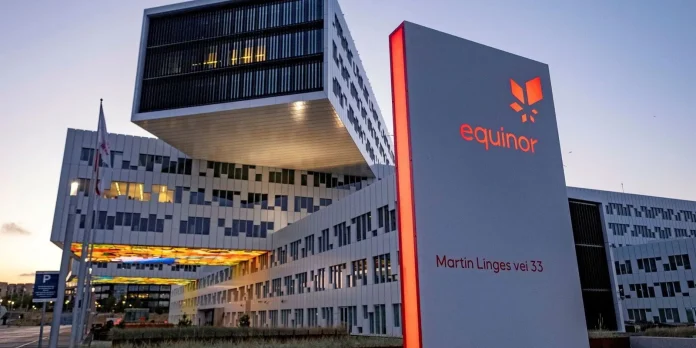Norwegian energy giant Equinor has officially exited Nigeria’s oil and gas sector, concluding a $1.2 billion divestment deal as part of its strategy to streamline its international operations and focus on more sustainable ventures. This decision comes after 31 years of active operations in the country’s oil-rich Niger Delta, marking the end of an era for Equinor in Nigeria.
The divestment, finalized on December 6, 2024, involves Equinor’s 53.85% stake in Oil Mining Lease (OML) 128, including its 20.21% interest in the Agbami oil field, one of Nigeria’s most prominent offshore oil assets. Agbami has been a cornerstone of Nigeria’s deep-water oil production, yielding over one billion barrels of crude oil since operations commenced in 2008. The deal includes an upfront payment of $710 million, with additional contingent considerations tied to future developments.
A Strategic Shift in Focus
This move aligns with Equinor’s broader strategy to reposition itself in the global energy landscape by prioritizing more profitable and environmentally sustainable projects. Over the past few years, the company has been shedding high-carbon assets to focus on renewables and low-carbon solutions, reflecting its commitment to the global energy transition.
“The energy sector is undergoing a seismic shift,” industry experts note. “Fossil fuels, which currently dominate global energy consumption, are projected to account for a much smaller share within the next 10 to 20 years as cleaner energy sources become more accessible and cost-effective.”
Equinor’s exit also underscores the growing challenges for oil majors in Nigeria, including regulatory uncertainties, security issues, and declining investment interest in oil due to global climate commitments. These factors have prompted international oil companies to reassess their portfolios, with many choosing to divest from high-risk or less profitable regions.
Agbami: A Legacy Asset
The Agbami oil field, a flagship deep-water project in Nigeria, has been a significant contributor to the country’s oil output. Managed under a joint venture with Chevron and other stakeholders, Agbami’s production capacity and operational efficiency have set benchmarks in offshore oil exploration. Equinor’s divestment of its 20.21% stake in the field signals a strategic withdrawal from one of Nigeria’s most productive oil projects, further emphasizing its shift in focus.
The Broader Implications for Nigeria
Equinor’s exit is part of a growing trend among international oil companies (IOCs) reducing their presence in Nigeria, a development that poses both challenges and opportunities for the country. While the divestment creates room for indigenous companies to acquire and operate these assets, it also raises concerns about the availability of the technical expertise and capital required to maintain production levels.
Moreover, Nigeria faces increasing pressure to adapt to the global energy transition. With the rising demand for renewable energy sources and declining investments in fossil fuels, the country must navigate a delicate balance between maximizing its hydrocarbon resources and accelerating its own clean energy initiatives.
The Future of Energy
Equinor’s decision highlights a broader industry reality: the future of energy is increasingly green. The company’s ongoing investments in wind, solar, and other renewable technologies exemplify its pivot toward a sustainable future. Industry thought leaders, including Noam Chomsky and Yuval Harari, have emphasized the urgent need to address the climate crisis, a sentiment echoed by governments and corporations worldwide.
As the world moves closer to a low-carbon economy, fossil fuels are expected to play a diminishing role. The International Energy Agency (IEA) projects that by 2050, renewable energy will account for the majority of global energy consumption, driven by advancements in technology and supportive policies.
Equinor’s exit from Nigeria, therefore, is not just a local story but part of a global narrative about the changing dynamics of the energy industry. For Nigeria, it serves as a wake-up call to embrace the energy transition proactively while maximizing the value of its existing resources. For Equinor, it is another step in its journey toward aligning with the demands of a sustainable energy future.
Conclusion
Equinor’s departure from Nigeria’s oil and gas sector signals a significant shift in the global energy landscape. As the world increasingly turns to renewable energy, the decision by one of Norway’s most prominent energy companies highlights the growing urgency to pivot away from fossil fuels. While this transition presents challenges, it also offers opportunities for innovation, collaboration, and sustainable growth, both for Nigeria and the global energy industry.




